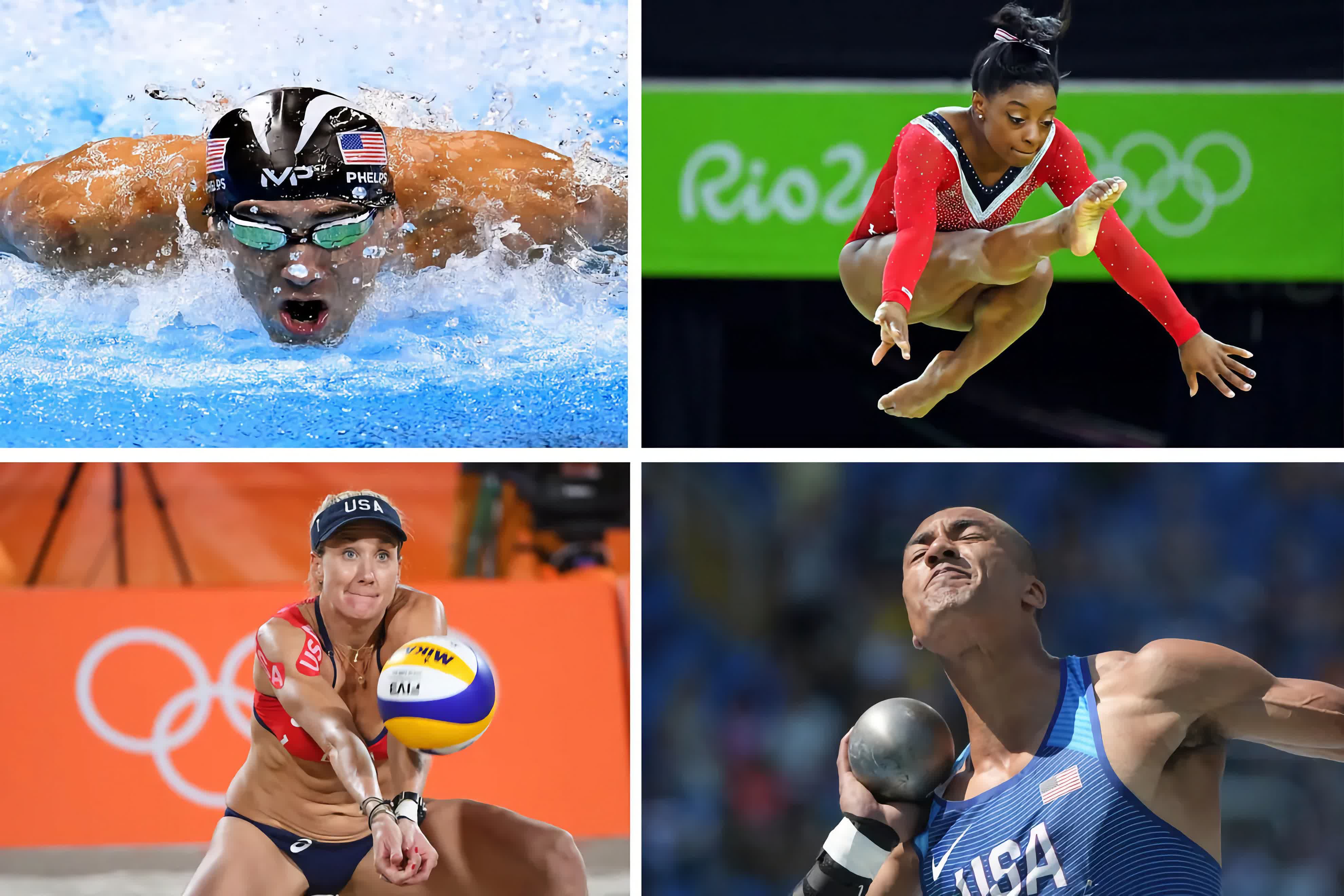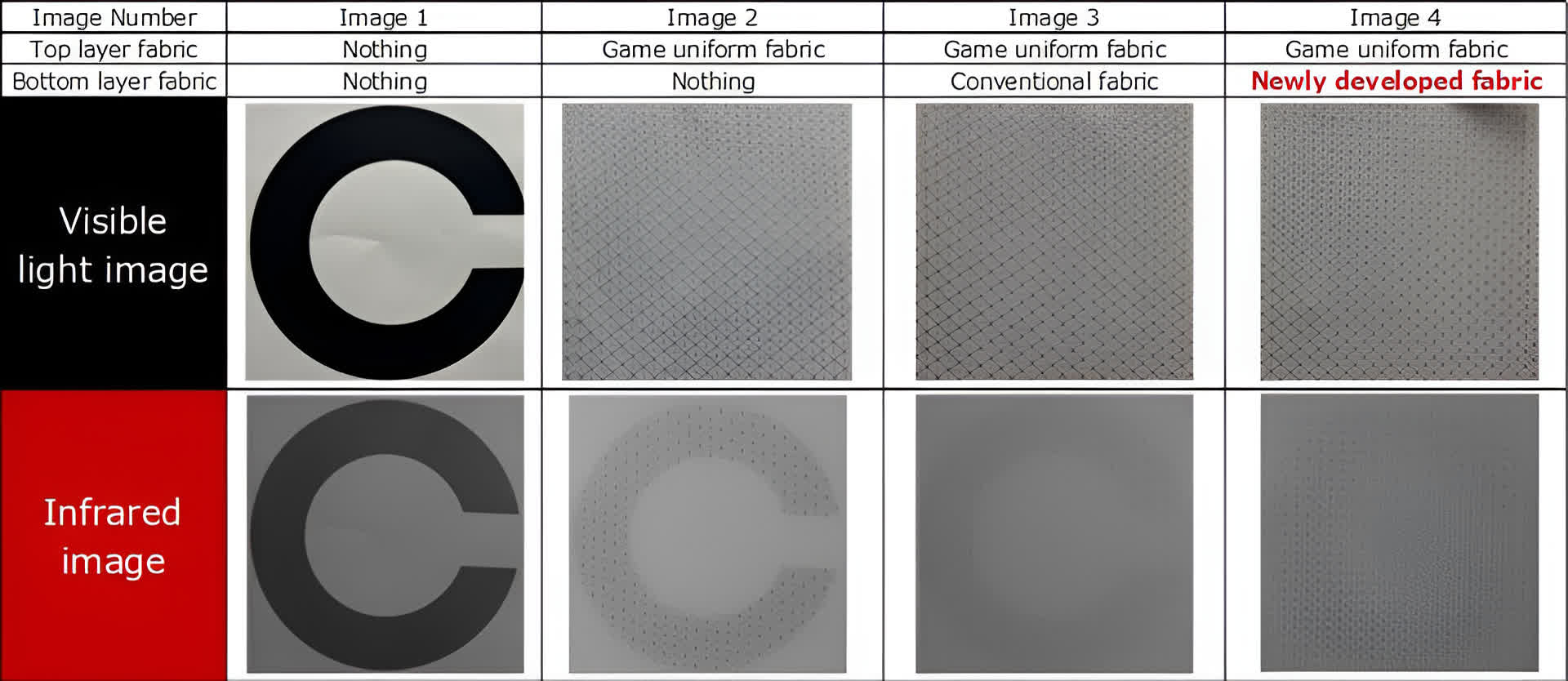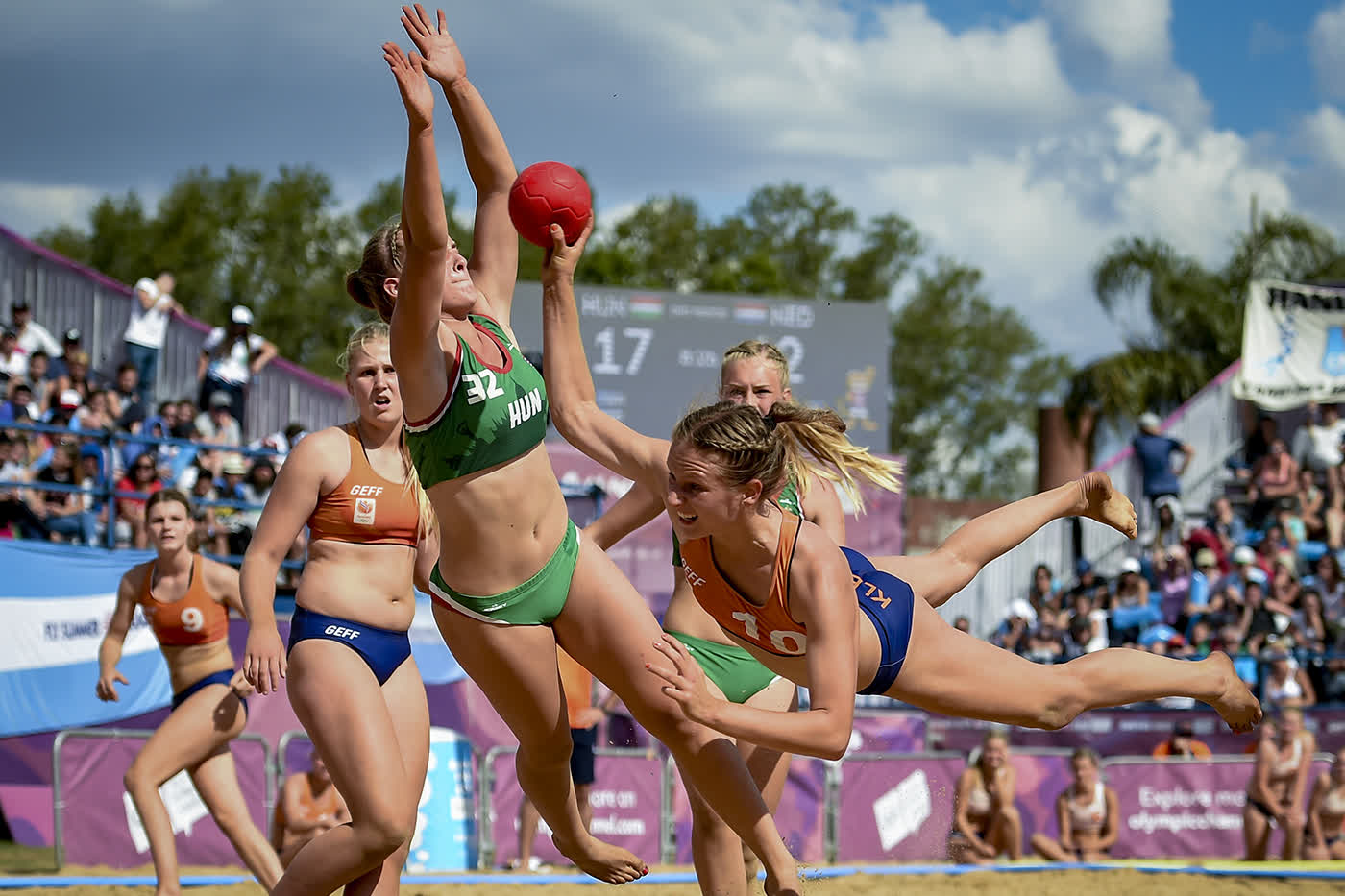Why it matters: When the 2024 Summer Olympics kick off in Paris next month, Japanese athletes will be sporting innovative new uniforms designed to block creepy infrared cameras. It's an unfortunate reality that female athletes have increasingly become victims of illicit photography and videography at competition venues. But an innovative solution is set to finally put an end to this problem.

In 2020, some athletes raised concerns with the Japanese Olympic Committee after finding infrared images of themselves circulated online accompanied by sexually explicit commentary, as reported by The Japan Times. In response, the committee has teamed up with sportswear giant Mizuno and a couple of other brands to co-develop a new kind of fabric that can absorb infrared light.
While standard athletic uniforms may appear opaque under visible light, infrared wavelengths can penetrate the material and render it semi-transparent, revealing images of their underwear and body underneath. Devices like night vision goggles, thermal cameras, and certain smartphone cameras can unintentionally capture this effect.
Meanwhile, the new infrared-blocking fabric sandwiches a specialized light-absorbing material inside the textile weave blocking any non-consensual captures. The tech fuses Sumitomo's materials expertise, Kyoto Printing's composite tech, and Mizuno's sportswear design and manufacturing capabilities.
Mizuno has shown off the technology in action with a demo. In the image above, you can see that the printed letter is nearly completely obscured when photographed through a layer of the new "game uniform fabric" using an infrared camera. Multiple layers can provide even more protection, though the uniforms need to strike a balance in order to keep athletes cool in Paris' expected summer heat.
It all seems quite promising. A 25-year-old sprinter, Mei Kodama, told Le Monde after trying on a prototype uniform that it was more comfortable than she thought.
Both athletes and sports organizations have struggled greatly against the rise of illicit photography at events. Competition organizers frequently ban cameras and place limits on permissible photography, but it's extremely difficult to fully control in an era of smartphone cameras. Take the OnePlus 8 Pro's "Photochrom" filter for example which was earlier found to see through thin black plastic and certain clothing.
Companies are also working on technologies to counter thermal imaging. Back in 2022, a UK unveiled an "invisibility cloak" jacket with voltage-controlled graphene panels that could trick a thermal camera.
Japanese Olympic athletes will wear infrared-blocking uniforms to keep camera creeps at bay

